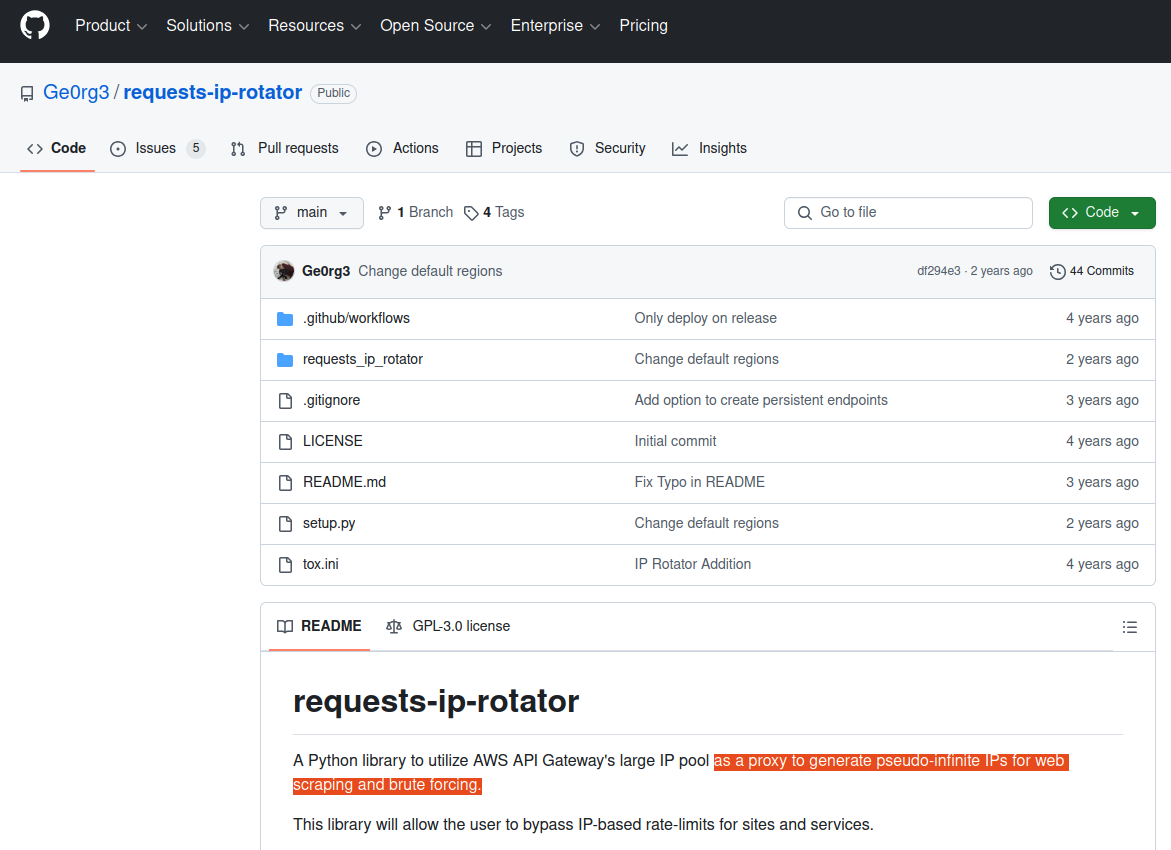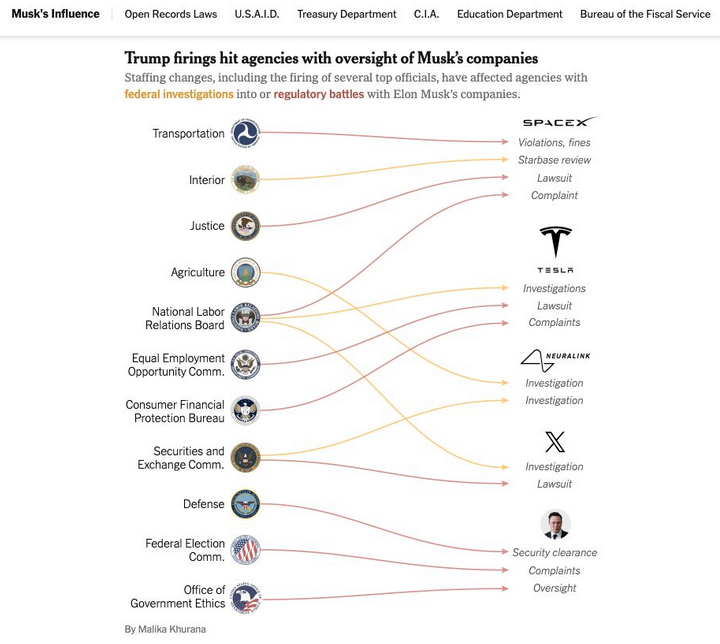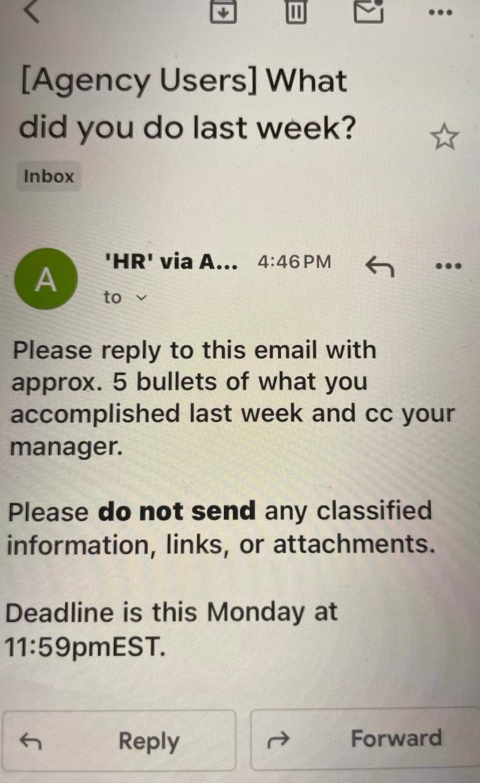
It's hard to explain the significance of CERN. It's the birthplace of the World Wide Web and the home of the largest machine ever built, the Large Hadron Collider. The bit that's hard to explain is, well, I mean, look at it!

Charlotte and I visited CERN in 2019, nestled in there between Switzerland and France, and descended into the mountainside where we saw the world's largest particle accelerator firsthand. I can't explain this! The physics are just mind-bending.
A few months ago, we headed back there and saw even more stuff I can't explain:

How on earth do you make antimatter?! I know there's a lot of magnets involved, but that's about the limit of my understanding.
But what I do understand a little better is the importance of CERN. They're working to help humanity understand the most profound questions about the universe by exploring fundamental physics—the very building blocks of nature. And closer to my heart (or at least to my expertise), their role in the World Wide Web and the contribution CERN has made to the internet as we know it today cannot be overstated. It's also staffed by passionate individuals with a love of science that transcends borders and politics, including many from parts of the world that don't normally see eye-to-eye. This passion was evident on both our visits, and perhaps that's an extra poignant observation in a time with so much conflict.
In relation to HIBP and our ongoing support of governments, CERN is similar yet different. It's an intergovernmental organisation operating outside the jurisdiction of any one nation. However, they face the same online threats, and just like sovereign government states, their people sign up to services that get breached and end up in HIBP. And, like the governments we support, services that can be provided to help them tackle that threat are always appreciated. I was surprised to hear on our last visit that the sum total of contributions from their member states amounts to the price of a cup of coffee per person per year! For the work they do and the contribution they make to society, onboarding CERN as the 41st (inter)government was a no-brainer. They now have full and free access to query all CERN domains across the breadth of HIBP data. Welcome aboard CERN!


Today, we welcome the 40th government onboarded to Have I Been Pwned's free gov service, Malaysia. The NC4 NACSA (National Cyber Coordination and Command Centre of the National Cyber Security Agency) in Malaysia now has full access to query all their government domains via API, and monitor them against future breaches.

Malaysia is the first Asian nation to make use of this service, and we look forward to seeing many more from this corner of the world in the future.


Today we welcome the 39th government and first self-governing British Crown Dependency to Have I Been Pwned, The Isle of Man. Their Office of Cyber-Security & Information Assurance (OCSIA) now has free and open access to query the government domains of their jurisdiction.
We're delighted and encouraged to see HIBP put to good use across such a wide variety of government use cases and look forward to seeing many more in the future.

An employee at Elon Musk’s artificial intelligence company xAI leaked a private key on GitHub that for the past two months could have allowed anyone to query private xAI large language models (LLMs) which appear to have been custom made for working with internal data from Musk’s companies, including SpaceX, Tesla and Twitter/X, KrebsOnSecurity has learned.

Image: Shutterstock, @sdx15.
Philippe Caturegli, “chief hacking officer” at the security consultancy Seralys, was the first to publicize the leak of credentials for an x.ai application programming interface (API) exposed in the GitHub code repository of a technical staff member at xAI.
Caturegli’s post on LinkedIn caught the attention of researchers at GitGuardian, a company that specializes in detecting and remediating exposed secrets in public and proprietary environments. GitGuardian’s systems constantly scan GitHub and other code repositories for exposed API keys, and fire off automated alerts to affected users.
GitGuardian’s Eric Fourrier told KrebsOnSecurity the exposed API key had access to several unreleased models of Grok, the AI chatbot developed by xAI. In total, GitGuardian found the key had access to at least 60 fine-tuned and private LLMs.
“The credentials can be used to access the X.ai API with the identity of the user,” GitGuardian wrote in an email explaining their findings to xAI. “The associated account not only has access to public Grok models (grok-2-1212, etc) but also to what appears to be unreleased (grok-2.5V), development (research-grok-2p5v-1018), and private models (tweet-rejector, grok-spacex-2024-11-04).”
Fourrier found GitGuardian had alerted the xAI employee about the exposed API key nearly two months ago — on March 2. But as of April 30, when GitGuardian directly alerted xAI’s security team to the exposure, the key was still valid and usable. xAI told GitGuardian to report the matter through its bug bounty program at HackerOne, but just a few hours later the repository containing the API key was removed from GitHub.
“It looks like some of these internal LLMs were fine-tuned on SpaceX data, and some were fine-tuned with Tesla data,” Fourrier said. “I definitely don’t think a Grok model that’s fine-tuned on SpaceX data is intended to be exposed publicly.”
xAI did not respond to a request for comment. Nor did the 28-year-old xAI technical staff member whose key was exposed.
Carole Winqwist, chief marketing officer at GitGuardian, said giving potentially hostile users free access to private LLMs is a recipe for disaster.
“If you’re an attacker and you have direct access to the model and the back end interface for things like Grok, it’s definitely something you can use for further attacking,” she said. “An attacker could it use for prompt injection, to tweak the (LLM) model to serve their purposes, or try to implant code into the supply chain.”
The inadvertent exposure of internal LLMs for xAI comes as Musk’s so-called Department of Government Efficiency (DOGE) has been feeding sensitive government records into artificial intelligence tools. In February, The Washington Post reported DOGE officials were feeding data from across the Education Department into AI tools to probe the agency’s programs and spending.
The Post said DOGE plans to replicate this process across many departments and agencies, accessing the back-end software at different parts of the government and then using AI technology to extract and sift through information about spending on employees and programs.
“Feeding sensitive data into AI software puts it into the possession of a system’s operator, increasing the chances it will be leaked or swept up in cyberattacks,” Post reporters wrote.
Wired reported in March that DOGE has deployed a proprietary chatbot called GSAi to 1,500 federal workers at the General Services Administration, part of an effort to automate tasks previously done by humans as DOGE continues its purge of the federal workforce.
A Reuters report last month said Trump administration officials told some U.S. government employees that DOGE is using AI to surveil at least one federal agency’s communications for hostility to President Trump and his agenda. Reuters wrote that the DOGE team has heavily deployed Musk’s Grok AI chatbot as part of their work slashing the federal government, although Reuters said it could not establish exactly how Grok was being used.
Caturegli said while there is no indication that federal government or user data could be accessed through the exposed x.ai API key, these private models are likely trained on proprietary data and may unintentionally expose details related to internal development efforts at xAI, Twitter, or SpaceX.
“The fact that this key was publicly exposed for two months and granted access to internal models is concerning,” Caturegli said. “This kind of long-lived credential exposure highlights weak key management and insufficient internal monitoring, raising questions about safeguards around developer access and broader operational security.”

Today, we're happy to welcome the Gambia National CSIRT to Have I Been Pwned as the 38th government to be onboarded with full and free access to their government domains. We've been offering this service for seven years now, and it enables national CSIRTs to gain greater visibility into the impact of data breaches on their respective nations.
Our goal at HIBP remains very straightforward: to do good things with data breaches after bad things happen. We hope this initiative helps support the Gambia National CSIRT as it has with many other governments around the world.

A whistleblower at the National Labor Relations Board (NLRB) alleged last week that denizens of Elon Musk’s Department of Government Efficiency (DOGE) siphoned gigabytes of data from the agency’s sensitive case files in early March. The whistleblower said accounts created for DOGE at the NLRB downloaded three code repositories from GitHub. Further investigation into one of those code bundles shows it is remarkably similar to a program published in January 2025 by Marko Elez, a 25-year-old DOGE employee who has worked at a number of Musk’s companies.
According to a whistleblower complaint filed last week by Daniel J. Berulis, a 38-year-old security architect at the NLRB, officials from DOGE met with NLRB leaders on March 3 and demanded the creation of several all-powerful “tenant admin” accounts that were to be exempted from network logging activity that would otherwise keep a detailed record of all actions taken by those accounts.
Berulis said the new DOGE accounts had unrestricted permission to read, copy, and alter information contained in NLRB databases. The new accounts also could restrict log visibility, delay retention, route logs elsewhere, or even remove them entirely — top-tier user privileges that neither Berulis nor his boss possessed.
Berulis said he discovered one of the DOGE accounts had downloaded three external code libraries from GitHub that neither NLRB nor its contractors ever used. A “readme” file in one of the code bundles explained it was created to rotate connections through a large pool of cloud Internet addresses that serve “as a proxy to generate pseudo-infinite IPs for web scraping and brute forcing.” Brute force attacks involve automated login attempts that try many credential combinations in rapid sequence.
A search on that description in Google brings up a code repository at GitHub for a user with the account name “Ge0rg3” who published a program roughly four years ago called “requests-ip-rotator,” described as a library that will allow the user “to bypass IP-based rate-limits for sites and services.”

The README file from the GitHub user Ge0rg3’s page for requests-ip-rotator includes the exact wording of a program the whistleblower said was downloaded by one of the DOGE users. Marko Elez created an offshoot of this program in January 2025.
“A Python library to utilize AWS API Gateway’s large IP pool as a proxy to generate pseudo-infinite IPs for web scraping and brute forcing,” the description reads.
Ge0rg3’s code is “open source,” in that anyone can copy it and reuse it non-commercially. As it happens, there is a newer version of this project that was derived or “forked” from Ge0rg3’s code — called “async-ip-rotator” — and it was committed to GitHub in January 2025 by DOGE captain Marko Elez.

The whistleblower stated that one of the GitHub files downloaded by the DOGE employees who transferred sensitive files from an NLRB case database was an archive whose README file read: “Python library to utilize AWS API Gateway’s large IP pool as a proxy to generate pseudo-infinite IPs for web scraping and brute forcing.” Elez’s code pictured here was forked in January 2025 from a code library that shares the same description.
A key DOGE staff member who gained access to the Treasury Department’s central payments system, Elez has worked for a number of Musk companies, including X, SpaceX, and xAI. Elez was among the first DOGE employees to face public scrutiny, after The Wall Street Journal linked him to social media posts that advocated racism and eugenics.
Elez resigned after that brief scandal, but was rehired after President Donald Trump and Vice President JD Vance expressed support for him. Politico reports Elez is now a Labor Department aide detailed to multiple agencies, including the Department of Health and Human Services.
“During Elez’s initial stint at Treasury, he violated the agency’s information security policies by sending a spreadsheet containing names and payments information to officials at the General Services Administration,” Politico wrote, citing court filings.
KrebsOnSecurity sought comment from both the NLRB and DOGE, and will update this story if either responds.
The NLRB has been effectively hobbled since President Trump fired three board members, leaving the agency without the quorum it needs to function. Both Amazon and Musk’s SpaceX have been suing the NLRB over complaints the agency filed in disputes about workers’ rights and union organizing, arguing that the NLRB’s very existence is unconstitutional. On March 5, a U.S. appeals court unanimously rejected Musk’s claim that the NLRB’s structure somehow violates the Constitution.
Berulis’s complaint alleges the DOGE accounts at NLRB downloaded more than 10 gigabytes of data from the agency’s case files, a database that includes reams of sensitive records including information about employees who want to form unions and proprietary business documents. Berulis said he went public after higher-ups at the agency told him not to report the matter to the US-CERT, as they’d previously agreed.
Berulis told KrebsOnSecurity he worried the unauthorized data transfer by DOGE could unfairly advantage defendants in a number of ongoing labor disputes before the agency.
“If any company got the case data that would be an unfair advantage,” Berulis said. “They could identify and fire employees and union organizers without saying why.”

Marko Elez, in a photo from a social media profile.
Berulis said the other two GitHub archives that DOGE employees downloaded to NLRB systems included Integuru, a software framework designed to reverse engineer application programming interfaces (APIs) that websites use to fetch data; and a “headless” browser called Browserless, which is made for automating web-based tasks that require a pool of browsers, such as web scraping and automated testing.
On February 6, someone posted a lengthy and detailed critique of Elez’s code on the GitHub “issues” page for async-ip-rotator, calling it “insecure, unscalable and a fundamental engineering failure.”
“If this were a side project, it would just be bad code,” the reviewer wrote. “But if this is representative of how you build production systems, then there are much larger concerns. This implementation is fundamentally broken, and if anything similar to this is deployed in an environment handling sensitive data, it should be audited immediately.”
Further reading: Berulis’s complaint (PDF).
Update 7:06 p.m. ET: Elez’s code repo was deleted after this story was published. An archived version of it is here.
President Trump last week revoked security clearances for Chris Krebs, the former director of the Cybersecurity and Infrastructure Security Agency (CISA) who was fired by Trump after declaring the 2020 election the most secure in U.S. history. The White House memo, which also suspended clearances for other security professionals at Krebs’s employer SentinelOne, comes as CISA is facing huge funding and staffing cuts.

Chris Krebs. Image: Getty Images.
The extraordinary April 9 memo directs the attorney general to investigate Chris Krebs (no relation), calling him “a significant bad-faith actor who weaponized and abused his government authority.”
The memo said the inquiry will include “a comprehensive evaluation of all of CISA’s activities over the last 6 years and will identify any instances where Krebs’ or CISA’s conduct appears to be contrary to the administration’s commitment to free speech and ending federal censorship, including whether Krebs’ conduct was contrary to suitability standards for federal employees or involved the unauthorized dissemination of classified information.”
CISA was created in 2018 during Trump’s first term, with Krebs installed as its first director. In 2020, CISA launched Rumor Control, a website that sought to rebut disinformation swirling around the 2020 election.
That effort ran directly counter to Trump’s claims that he lost the election because it was somehow hacked and stolen. The Trump campaign and its supporters filed at least 62 lawsuits contesting the election, vote counting, and vote certification in nine states, and nearly all of those cases were dismissed or dropped for lack of evidence or standing.
When the Justice Department began prosecuting people who violently attacked the U.S. Capitol on January 6, 2021, President Trump and Republican leaders shifted the narrative, claiming that Trump lost the election because the previous administration had censored conservative voices on social media.
Incredibly, the president’s memo seeking to ostracize Krebs stands reality on its head, accusing Krebs of promoting the censorship of election information, “including known risks associated with certain voting practices.” Trump also alleged that Krebs “falsely and baselessly denied that the 2020 election was rigged and stolen, including by inappropriately and categorically dismissing widespread election malfeasance and serious vulnerabilities with voting machines” [emphasis added].
Krebs did not respond to a request for comment. SentinelOne issued a statement saying it would cooperate in any review of security clearances held by its personnel, which is currently fewer than 10 employees.
Krebs’s former agency is now facing steep budget and staff reductions. The Record reports that CISA is looking to remove some 1,300 people by cutting about half its full-time staff and another 40% of its contractors.
“The agency’s National Risk Management Center, which serves as a hub analyzing risks to cyber and critical infrastructure, is expected to see significant cuts, said two sources familiar with the plans,” The Record’s Suzanne Smalley wrote. “Some of the office’s systematic risk responsibilities will potentially be moved to the agency’s Cybersecurity Division, according to one of the sources.”
CNN reports the Trump administration is also advancing plans to strip civil service protections from 80% of the remaining CISA employees, potentially allowing them to be fired for political reasons.
The Electronic Frontier Foundation (EFF) urged professionals in the cybersecurity community to defend Krebs and SentinelOne, noting that other security companies and professionals could be the next victims of Trump’s efforts to politicize cybersecurity.
“The White House must not be given free reign to turn cybersecurity professionals into political scapegoats,” the EFF wrote. “It is critical that the cybersecurity community now join together to denounce this chilling attack on free speech and rally behind Krebs and SentinelOne rather than cowering because they fear they will be next.”
However, Reuters said it found little sign of industry support for Krebs or SentinelOne, and that many security professionals are concerned about potentially being targeted if they speak out.
“Reuters contacted 33 of the largest U.S. cybersecurity companies, including tech companies and professional services firms with large cybersecurity practices, and three industry groups, for comment on Trump’s action against SentinelOne,” wrote Raphael Satter and A.J. Vicens. “Only one offered comment on Trump’s action. The rest declined, did not respond or did not answer questions.”
On April 3, President Trump fired Gen. Timothy Haugh, the head of the National Security Agency (NSA) and the U.S. Cyber Command, as well as Haugh’s deputy, Wendy Noble. The president did so immediately after meeting in the Oval Office with far-right conspiracy theorist Laura Loomer, who reportedly urged their dismissal. Speaking to reporters on Air Force One after news of the firings broke, Trump questioned Haugh’s loyalty.

Gen. Timothy Haugh. Image: C-SPAN.
Virginia Senator Mark Warner, the top Democrat on the Senate Intelligence Committee, called it inexplicable that the administration would remove the senior leaders of NSA-CYBERCOM without cause or warning, and risk disrupting critical ongoing intelligence operations.
“It is astonishing, too, that President Trump would fire the nonpartisan, experienced leader of the National Security Agency while still failing to hold any member of his team accountable for leaking classified information on a commercial messaging app – even as he apparently takes staffing direction on national security from a discredited conspiracy theorist in the Oval Office,” Warner said in a statement.
On Feb. 28, The Record’s Martin Matishak cited three sources saying Defense Secretary Pete Hegseth ordered U.S. Cyber Command to stand down from all planning against Russia, including offensive digital actions. The following day, The Guardian reported that analysts at CISA were verbally informed that they were not to follow or report on Russian threats, even though this had previously been a main focus for the agency.
A follow-up story from The Washington Post cited officials saying Cyber Command had received an order to halt active operations against Russia, but that the pause was intended to last only as long as negotiations with Russia continue.
The Department of Defense responded on Twitter/X that Hegseth had “neither canceled nor delayed any cyber operations directed against malicious Russian targets and there has been no stand-down order whatsoever from that priority.”
But on March 19, Reuters reported several U.S. national security agencies have halted work on a coordinated effort to counter Russian sabotage, disinformation and cyberattacks.
“Regular meetings between the National Security Council and European national security officials have gone unscheduled, and the NSC has also stopped formally coordinating efforts across U.S. agencies, including with the FBI, the Department of Homeland Security and the State Department,” Reuters reported, citing current and former officials.
President’s Trump’s institution of 125% tariffs on goods from China has seen Beijing strike back with 84 percent tariffs on U.S. imports. Now, some security experts are warning that the trade war could spill over into a cyber conflict, given China’s successful efforts to burrow into America’s critical infrastructure networks.
Over the past year, a number of Chinese government-backed digital intrusions have come into focus, including a sprawling espionage campaign involving the compromise of at least nine U.S. telecommunications providers. Dubbed “Salt Typhoon” by Microsoft, these telecom intrusions were pervasive enough that CISA and the FBI in December 2024 warned Americans against communicating sensitive information over phone networks, urging people instead to use encrypted messaging apps (like Signal).
The other broad ranging China-backed campaign is known as “Volt Typhoon,” which CISA described as “state-sponsored cyber actors seeking to pre-position themselves on IT networks for disruptive or destructive cyberattacks against U.S. critical infrastructure in the event of a major crisis or conflict with the United States.”
Responsibility for determining the root causes of the Salt Typhoon security debacle fell to the Cyber Safety Review Board (CSRB), a nonpartisan government entity established in February 2022 with a mandate to investigate the security failures behind major cybersecurity events. But on his first full day back in the White House, President Trump dismissed all 15 CSRB advisory committee members — likely because those advisers included Chris Krebs.
Last week, Sen. Ron Wyden (D-Ore.) placed a hold on Trump’s nominee to lead CISA, saying the hold would continue unless the agency published a report on the telecom industry hacks, as promised.
“CISA’s multi-year cover up of the phone companies’ negligent cybersecurity has real consequences,” Wyden said in a statement. “Congress and the American people have a right to read this report.”
The Wall Street Journal reported last week Chinese officials acknowledged in a secret December meeting that Beijing was behind the widespread telecom industry compromises.
“The Chinese official’s remarks at the December meeting were indirect and somewhat ambiguous, but most of the American delegation in the room interpreted it as a tacit admission and a warning to the U.S. about Taiwan,” The Journal’s Dustin Volz wrote, citing a former U.S. official familiar with the meeting.
Meanwhile, China continues to take advantage of the mass firings of federal workers. On April 9, the National Counterintelligence and Security Center warned (PDF) that Chinese intelligence entities are pursuing an online effort to recruit recently laid-off U.S. employees.
“Foreign intelligence entities, particularly those in China, are targeting current and former U.S. government (USG) employees for recruitment by posing as consulting firms, corporate headhunters, think tanks, and other entities on social and professional networking sites,” the alert warns. “Their deceptive online job offers, and other virtual approaches, have become more sophisticated in targeting unwitting individuals with USG backgrounds seeking new employment.”
As Reuters notes, the FBI last month ended an effort to counter interference in U.S. elections by foreign adversaries including Russia, and put on leave staff working on the issue at the Department of Homeland Security.
Meanwhile, the U.S. Senate is now considering a House-passed bill dubbed the “Safeguard American Voter Eligibility (SAVE) Act,” which would order states to obtain proof of citizenship, such as a passport or a birth certificate, in person from those seeking to register to vote.
Critics say the SAVE Act could disenfranchise millions of voters and discourage eligible voters from registering to vote. What’s more, documented cases of voter fraud are few and far between, as is voting by non-citizens. Even the conservative Heritage Foundation acknowledges as much: An interactive “election fraud map” published by Heritage lists just 1,576 convictions or findings of voter fraud between 1982 and the present day.
Nevertheless, the GOP-led House passed the SAVE Act with the help of four Democrats. Its passage in the Senate will require support from at least seven Democrats, Newsweek writes.
In February, CISA cut roughly 130 employees, including its election security advisors. The agency also was forced to freeze all election security activities pending an internal review. The review was reportedly completed in March, but the Trump administration has said the findings would not be made public, and there is no indication of whether any cybersecurity support has been restored.
Many state leaders have voiced anxiety over the administration’s cuts to CISA programs that provide assistance and threat intelligence to election security efforts. Iowa Secretary of State Paul Pate last week told the PBS show Iowa Press he would not want to see those programs dissolve.
“If those (systems) were to go away, it would be pretty serious,” Pate said. “We do count on a lot those cyber protections.”
Pennsylvania’s Secretary of the Commonwealth Al Schmidt recently warned the CISA election security cuts would make elections less secure, and said no state on its own can replace federal election cybersecurity resources.
The Pennsylvania Capital-Star reports that several local election offices received bomb threats around the time polls closed on Nov. 5, and that in the week before the election a fake video showing mail-in ballots cast for Trump and Sen. Dave McCormick (R-Pa.) being destroyed and thrown away was linked to a Russian disinformation campaign.
“CISA was able to quickly identify not only that it was fraudulent, but also the source of it, so that we could share with our counties and we could share with the public so confidence in the election wasn’t undermined,” Schmidt said.
According to CNN, the administration’s actions have deeply alarmed state officials, who warn the next round of national elections will be seriously imperiled by the cuts. A bipartisan association representing 46 secretaries of state, and several individual top state election officials, have pressed the White House about how critical functions of protecting election security will perform going forward. However, CNN reports they have yet to receive clear answers.
Nevada and 18 other states are suing Trump over an executive order he issued on March 25 that asserts the executive branch has broad authority over state election procedures.
“None of the president’s powers allow him to change the rules of elections,” Nevada Secretary of State Cisco Aguilar wrote in an April 11 op-ed. “That is an intentional feature of our Constitution, which the Framers built in to ensure election integrity. Despite that, Trump is seeking to upend the voter registration process; impose arbitrary deadlines on vote counting; allow an unelected and unaccountable billionaire to invade state voter rolls; and withhold congressionally approved funding for election security.”
The order instructs the U.S. Election Assistance Commission to abruptly amend the voluntary federal guidelines for voting machines without going through the processes mandated by federal law. And it calls for allowing the administrator of the so-called Department of Government Efficiency (DOGE), along with DHS, to review state voter registration lists and other records to identify non-citizens.
The Atlantic’s Paul Rosenzweig notes that the chief executive of the country — whose unilateral authority the Founding Fathers most feared — has literally no role in the federal election system.
“Trump’s executive order on elections ignores that design entirely,” Rosenzweig wrote. “He is asserting an executive-branch role in governing the mechanics of a federal election that has never before been claimed by a president. The legal theory undergirding this assertion — that the president’s authority to enforce federal law enables him to control state election activity — is as capacious as it is frightening.”
At 49, Branden Spikes isn’t just one of the oldest technologists who has been involved in Elon Musk’s Department of Government Efficiency (DOGE). As the current director of information technology at X/Twitter and an early hire at PayPal, Zip2, Tesla and SpaceX, Spikes is also among Musk’s most loyal employees. Here’s a closer look at this trusted Musk lieutenant, whose Russian ex-wife was once married to Elon’s cousin.

The profile of Branden Spikes on X.
When President Trump took office again in January, he put the world’s richest man — Elon Musk — in charge of the U.S. Digital Service, and renamed the organization as DOGE. The group is reportedly staffed by at least 50 technologists, many of whom have ties to Musk’s companies.
DOGE has been enabling the president’s ongoing mass layoffs and firings of federal workers, largely by seizing control over computer systems and government data for a multitude of federal agencies, including the Social Security Administration, the Department of Homeland Security, the Office of Personnel Management, and the Treasury Department.
It is difficult to find another person connected to DOGE who has stronger ties to Musk than Branden Spikes. A native of California, Spikes initially teamed up with Musk in 1997 as a lead systems engineer for the software company Zip2, the first major venture for Musk. In 1999, Spikes was hired as director of IT at PayPal, and in 2002 he became just the fourth person hired at SpaceX.
In 2012, Spikes launched Spikes Security, a software product that sought to create a compartmentalized or “sandboxed” web browser that could insulate the user from malware attacks. A review of spikes.com in the Wayback Machine shows that as far back as 1998, Musk could be seen joining Spikes for team matches in the online games Quake and Quake II. In 2016, Spikes Security was merged with another security suite called Aurionpro, with the combined company renamed Cyberinc.

A snapshot of spikes.com from 1998 shows Elon Musk’s profile in Spike’s clan for the games Quake and Quake II.
Spikes’s LinkedIn profile says he was appointed head of IT at X in February 2025. And although his name shows up on none of the lists of DOGE employees circulated by various media outlets, multiple sources told KrebsOnSecurity that Spikes was working with DOGE and operates within Musk’s inner circle of trust.
In a conversation with KrebsOnSecurity, Spikes said he is dedicated to his country and to saving it from what he sees as certain ruin.
“Myself, I was raised by a southern conservative family in California and I strongly believe in America and her future,” Spikes said. “This is why I volunteered for two months in DC recently to help DOGE save us from certain bankruptcy.”
Spikes told KrebsOnSecurity that he recently decided to head back home and focus on his job as director of IT at X.
“I loved it, but ultimately I did not want to leave my hometown and family back in California,” Spikes said of his tenure at DOGE. “After a couple of months it became clear that to continue helping I would need to move to DC and commit a lot more time, so I politely bowed out.”
Prior to founding Spikes Security, Branden Spikes was married to a native Russian woman named Natalia whom he’d met at a destination wedding in South America in 2003.
Branden and Natalia’s names are both on the registration records for the domain name orangetearoom[.]com. This domain, which DomainTools.com says was originally registered by Branden in 2009, is the home of a tax-exempt charity in Los Angeles called the California Russian Association.
Here is a photo from a 2011 event organized by the California Russian Association, showing Branden and Natalia at one of its “White Nights” charity fundraisers:

Branden and Natalia Spikes, on left, in 2011. The man on the far right is Ivan Y. Podvalov, a board member of the Kremlin-aligned Congress of Russian Americans (CRA). The man in the center is Feodor Yakimoff, director of operations at the Transib Global Sourcing Group, and chairman of the Russian Imperial Charity Balls, which works in concert with the Russian Heritage Foundation.
In 2011, the Spikes couple got divorced, and Natalia changed her last name to Haldeman. That is not her maiden name, which appears to be “Libina.” Rather, Natalia acquired the surname Haldeman in 1998, when she married Elon Musk’s cousin.
Reeve Haldeman is the son of Scott Haldeman, who is the brother of Elon Musk’s mother, Maye Musk. Divorce records show Reeve and Natalia officially terminated their marriage in 2007. Reeve Haldeman did not respond to a request for comment.
A review of other domain names connected to Natalia Haldeman’s email address show she has registered more than a dozen domains over the years that are tied to the California Russian Association, and an apparently related entity called the Russian Heritage Foundation, Inc.:
russianamericans.org
russianamericanstoday.com
russianamericanstoday.org
russiancalifornia.org
russianheritagefoundation.com
russianheritagefoundation.org
russianwhitenights.com
russianwhitenights.org
theforafoundation.org
thegoldentearoom.com
therussianheritagefoundation.org
tsarinahome.com
Ms. Haldeman did not respond to requests for comment. Her name and contact information appears in the registration records for these domains dating back to 2010, and a document published by ProPublica show that by 2016 Natalia Haldeman was appointed CEO of the California Russian Foundation.
The domain name that bears both Branden’s and Natalia’s names — orangetearoom.com — features photos of Ms. Haldeman at fundraising events for the Russian foundation through 2014. Additional photos of her and many of the same people can be seen through 2023 at another domain she registered in 2010 — russianheritagefoundation.com.

A photo from Natalia Haldeman’s Facebook page shows her mother (left) pictured with Maye Musk, Elon Musk’s mother, in 2022.
The photo of Branden and Natalia above is from one such event in 2011 (tied to russianwhitenights.org, another Haldeman domain). The person on the right in that image — Ivan Y. Podvalov — appears in many fundraising event photos published by the foundation over the past decade. Podvalov is a board member of the Congress of Russian Americans (CRA), a nonprofit group that is known for vehemently opposing U.S. financial and legal sanctions against Russia.
Writing for The Insider in 2022, journalist Diana Fishman described how the CRA has engaged in outright political lobbying, noting that the organization in June 2014 sent a letter to President Obama and the secretary of the United Nations, calling for an end to the “large-scale US intervention in Ukraine and the campaign to isolate Russia.”
“The US military contingents must be withdrawn immediately from the Eastern European region, and NATO’s enlargement efforts and provocative actions against Russia must cease,” the message read.
The Insider said the CRA director sent another two letters, this time to President Donald Trump, in 2017 and 2018.
“One was a request not to sign a law expanding sanctions against Russia,” Fishman wrote. “The other regretted the expulsion of 60 Russian diplomats from the United States and urged not to jump to conclusions on Moscow’s involvement in the poisoning of Sergei Skripal.”
The nonprofit tracking website CauseIQ.com reports that The Russian Heritage Foundation, Inc. is now known as Constellation of Humanity.
The Russian Heritage Foundation and the California Russian Association both promote the interests of the Russian Orthodox Church. This page indexed by Archive.org from russiancalifornia.org shows The California Russian Foundation organized a community effort to establish an Orthodox church in Orange County, Calif.
A press release from the Russian Orthodox Church Outside of Russia (ROCOR) shows that in 2021 the Russian Heritage Foundation donated money to organize a conference for the Russian Orthodox Church in Serbia.
A review of the “Partners” listed on the Spikes’ jointly registered domain — orangetearoom.com — shows the organization worked with a marketing company called Russian American Media. Reporting by KrebsOnSecurity last year showed that Russian American Media also partners with the problematic people-search service Radaris, which was formed by two native Russian brothers in Massachusetts who have built a fleet of consumer data brokers and Russian affiliate programs.
When asked about his ex-wife’s history, Spikes said she has a good heart and bears no ill-will toward anyone.
“I attended several of Natalia’s social events over the years we were together and can assure you that she’s got the best intentions with those,” Spikes told KrebsOnSecurity. “There’s no funny business going on. It is just a way for those friendly immigrants to find resources amongst each other to help get settled in and chase the American dream. I mean, they’re not unlike the immigrants from other countries who come to America and try to find each other and help each other find others who speak the language and share in the building of their businesses here in America.”
Spikes said his own family roots go back deeply into American history, sharing that his 6th great grandfather was Alexander Hamilton on his mom’s side, and Jessie James on his dad’s side.
“My family roots are about as American as you can get,” he said. “I’ve also been entrusted with building and safeguarding Elon’s companies since 1999 and have a keen eye (as you do) for bad actors, so have enough perspective to tell you that Natalia has no bad blood and that she loves America.”
Of course, this perspective comes from someone who has the utmost regard for the interests of the “special government employee” Mr. Musk, who has been bragging about tossing entire federal agencies into the “wood chipper,” and who recently wielded an actual chainsaw on stage while referring to it as the “chainsaw for bureaucracy.”
“Elon’s intentions are good and you can trust him,” Spikes assured.
A special note of thanks for research assistance goes to Jacqueline Sweet, an independent investigative journalist whose work has been published in The Guardian, Rolling Stone, POLITICO and The Intercept.
One month into his second term, President Trump’s actions to shrink the government through mass layoffs, firings and withholding funds allocated by Congress have thrown federal cybersecurity and consumer protection programs into disarray. At the same time, agencies are battling an ongoing effort by the world’s richest man to wrest control over their networks and data.

Image: Shutterstock. Greg Meland.
The Trump administration has fired at least 130 employees at the federal government’s foremost cybersecurity body — the Cybersecurity and Infrastructure Security Agency (CISA). Those dismissals reportedly included CISA staff dedicated to securing U.S. elections, and fighting misinformation and foreign influence operations.
Earlier this week, technologists with Elon Musk’s Department of Government Efficiency (DOGE) arrived at CISA and gained access to the agency’s email and networked files. Those DOGE staffers include Edward “Big Balls” Coristine, a 19-year-old former denizen of the “Com,” an archipelago of Discord and Telegram chat channels that function as a kind of distributed cybercriminal social network.
The investigative journalist Jacob Silverman writes that Coristine is the grandson of Valery Martynov, a KGB double agent who spied for the United States. Silverman recounted how Martynov’s wife Natalya Martynova moved to the United States with her two children after her husband’s death.
“Her son became a Virginia police officer who sometimes posts comments on blogs about his historically famous father,” Silverman wrote. “Her daughter became a financial professional who married Charles Coristine, the proprietor of LesserEvil, a snack company. Among their children is a 19-year-old young man named Edward Coristine, who currently wields an unknown amount of power and authority over the inner-workings of our federal government.”
Another member of DOGE is Christopher Stanley, formerly senior director for security engineering at X and principal security engineer at Musk’s SpaceX. Stanley, 33, had a brush with celebrity on Twitter in 2015 when he leaked the user database for the DDoS-for-hire service LizardStresser, and soon faced threats of physical violence against his family.
My 2015 story on that leak did not name Stanley, but he exposed himself as the source by posting a video about it on his Youtube channel. A review of domain names registered by Stanley shows he went by the nickname “enKrypt,” and was the former owner of a pirated software and hacking forum called error33[.]net, as well as theC0re, a video game cheating community.
DOGE has been steadily gaining sensitive network access to federal agencies that hold a staggering amount of personal and financial information on Americans, including the Social Security Administration (SSA), the Department of Homeland Security, the Office of Personnel Management (OPM), and the Treasury Department.
Most recently, DOGE has sought broad access to systems at the Internal Revenue Service that contain the personal tax information on millions of Americans, including how much individuals earn and owe, property information, and even details related to child custody agreements. The New York Times reported Friday that the IRS had reached an agreement whereby a single DOGE employee — 25-year-old Gavin Kliger — will be allowed to see only anonymized taxpayer information.
The rapidity with which DOGE has rifled through one federal database after another in the name of unearthing “massive fraud” by government agencies has alarmed many security experts, who warned that DOGE’s actions bypassed essential safeguards and security measures.
“The most alarming aspect isn’t just the access being granted,” wrote Bruce Schneier and Davi Ottenheimer, referring to DOGE as a national cyberattack. “It’s the systematic dismantling of security measures that would detect and prevent misuse—including standard incident response protocols, auditing, and change-tracking mechanisms—by removing the career officials in charge of those security measures and replacing them with inexperienced operators.”
Jacob Williams is a former hacker with the U.S. National Security Agency who now works as managing director of the cybersecurity firm Hunter Labs. Williams kicked a virtual hornet’s nest last week when he posted on LinkedIn that the network incursions by DOGE were “a bigger threat to U.S. federal government information systems than China.”
Williams said while he doesn’t believe anyone at DOGE would intentionally harm the integrity and availability of these systems, it’s widely reported (and not denied) that DOGE introduced code changes into multiple federal IT systems. These code changes, he maintained, are not following the normal process for vetting and review given to federal government IT systems.
“For those thinking ‘I’m glad they aren’t following the normal federal government IT processes, those are too burdensome’ I get where you’re coming from,” Williams wrote. “But another name for ‘red tape’ are ‘controls.’ If you’re comfortable bypassing controls for the advancement of your agenda, I have questions – mostly about whether you do this in your day job too. Please tag your employer letting them know your position when you comment that controls aren’t important (doubly so if you work in cybersecurity). All satire aside, if you’re comfortable abandoning controls for expediency, I implore you to decide where the line is that you won’t cross in that regard.”
The DOGE website’s “wall of receipts” boasts that Musk and his team have saved the federal government more than $55 billion through staff reductions, lease cancellations and terminated contracts. But a team of reporters at The New York Times found the math that could back up those checks is marred with accounting errors, incorrect assumptions, outdated data and other mistakes.
For example, DOGE claimed it saved $8 billion in one contract, when the total amount was actually $8 million, The Times found.
“Some contracts the group claims credit for were double- or triple-counted,” reads a Times story with six bylines. “Another initially contained an error that inflated the totals by billions of dollars. While the DOGE team has surely cut some number of billions of dollars, its slapdash accounting adds to a pattern of recklessness by the group, which has recently gained access to sensitive government payment systems.”
So far, the DOGE website does not inspire confidence: We learned last week that the doge.gov administrators somehow left their database wide open, allowing someone to publish messages that ridiculed the site’s insecurity.

A screenshot of the DOGE website after it was defaced with the message: “These ‘experts’ left their database open – roro”
Trump’s efforts to grab federal agencies by their data has seen him replace career civil servants who refused to allow DOGE access to agency networks. CNN reports that Michelle King, acting commissioner of the Social Security Administration for more than 30 years, was shown the door after she denied DOGE access to sensitive information.
King was replaced by Leland Dudek, formerly a senior advisor in the SSA’s Office of Program Integrity. This week, Dudek posted a now-deleted message on LinkedIn acknowledging he had been placed on administrative leave for cooperating with DOGE.
“I confess,” Dudek wrote. “I bullied agency executives, shared executive contact information, and circumvented the chain of command to connect DOGE with the people who get stuff done. I confess. I asked where the fat was and is in our contracts so we can make the right tough choices.”

Dudek’s message on LinkedIn.
According to Wired, the National Institute of Standards and Technology (NIST) was also bracing this week for roughly 500 staffers to be fired, which could have serious impacts on NIST’s cybersecurity standards and software vulnerability tracking work.
“And cuts last week at the US Digital Service included the cybersecurity lead for the central Veterans Affairs portal, VA.gov, potentially leaving VA systems and data more vulnerable without someone in his role,” Wired’s Andy Greenberg and Lily Hay Newman wrote.
NextGov reports that Trump named the Department of Defense’s new chief information security officer: Katie Arrington, a former South Carolina state lawmaker who helped steer Pentagon cybersecurity contracting policy before being put on leave amid accusations that she disclosed classified data from a military intelligence agency.
NextGov notes that the National Security Agency suspended her clearance in 2021, although the exact reasons that led to the suspension and her subsequent leave were classified. Arrington argued that the suspension was a politically motivated effort to silence her.
Trump also appointed the former chief operating officer of the Republican National Committee as the new head of the Office of National Cyber Director. Sean Cairncross, who has no formal experience in technology or security, will be responsible for coordinating national cybersecurity policy, advising the president on cyber threats, and ensuring a unified federal response to emerging cyber-risks, Politico writes.
DarkReading reports that Cairncross would share responsibility for advising the president on cyber matters, along with the director of cyber at the White House National Security Council (NSC) — a group that advises the president on all matters security related, and not just cyber.
The president also ordered staffers at the Consumer Financial Protection Bureau (CFPB) to stop most work. Created by Congress in 2011 to be a clearinghouse of consumer complaints, the CFPB has sued some of the nation’s largest financial institutions for violating consumer protection laws.
The CFPB says its actions have put nearly $18 billion back in Americans’ pockets in the form of monetary compensation or canceled debts, and imposed $4 billion in civil money penalties against violators. The CFPB’s homepage has featured a “404: Page not found” error for weeks now.
Trump has appointed Russell Vought, the architect of the conservative policy playbook Project 2025, to be the CFPB’s acting director. Vought has publicly favored abolishing the agency, as has Elon Musk, whose efforts to remake X into a payments platform would otherwise be regulated by the CFPB.
The New York Times recently published a useful graphic showing all of the government staffing changes, including the firing of several top officials, affecting agencies with federal investigations into or regulatory battles with Musk’s companies. Democrats on the House Judiciary Committee also have released a comprehensive account (PDF) of Musk’s various conflicts of interest.

Image: nytimes.com
As the Times notes, Musk and his companies have repeatedly failed to comply with federal reporting protocols aimed at protecting state secrets, and these failures have prompted at least three federal reviews. Those include an inquiry launched last year by the Defense Department’s Office of Inspector General. Four days after taking office, Trump fired the DoD inspector general along with 17 other inspectors general.
The Trump administration also shifted the enforcement priorities of the U.S. Securities and Exchange Commission (SEC) away from prosecuting misconduct in the cryptocurrency sector, reassigning lawyers and renaming the unit to focus more on “cyber and emerging technologies.”
Reuters reports that the former SEC chair Gary Gensler made fighting misconduct in a sector he termed the “wild west” a priority for the agency, targeting not only cryptocurrency fraudsters but also the large firms that facilitate trading such as Coinbase.
On Friday, Coinbase said the SEC planned to withdraw its lawsuit against the crypto exchange. Also on Friday, the cryptocurrency exchange Bybit announced on X that a cybersecurity breach led to the theft of more than $1.4 billion worth of cryptocurrencies — making it the largest crypto heist ever.
On Feb. 10, Trump ordered executive branch agencies to stop enforcing the U.S. Foreign Corrupt Practices Act, which froze foreign bribery investigations, and even allows for “remedial actions” of past enforcement actions deemed “inappropriate.”
Trump’s action also disbanded the Kleptocracy Asset Recovery Initiative and KleptoCapture Task Force — units which proved their value in corruption cases and in seizing the assets of sanctioned Russian oligarchs — and diverted resources away from investigating white-collar crime.
That’s according to the independent Organized Crime and Corruption Reporting Project (OCCRP), an investigative journalism outlet that until very recently was funded in part by the U.S. Agency for International Development (USAID).
The OCCRP lost nearly a third of its funding and was forced to lay off 43 reporters and staff after Trump moved to shutter USAID and freeze its spending. NBC News reports the Trump administration plans to gut the agency and leave fewer than 300 staffers on the job out of the current 8,000 direct hires and contractors.
The Global Investigative Journalism Network wrote this week that the sudden hold on USAID foreign assistance funding has frozen an estimated $268 million in agreed grants for independent media and the free flow of information in more than 30 countries — including several under repressive regimes.
Elon Musk has called USAID “a criminal organization” without evidence, and promoted fringe theories on his social media platform X that the agency operated without oversight and was rife with fraud. Just months before the election, USAID’s Office of Inspector General announced an investigation into USAID’s oversight of Starlink satellite terminals provided to the government of Ukraine.
KrebsOnSecurity this week heard from a trusted source that all outgoing email from USAID now carries a notation of “sensitive but unclassified,” a designation that experts say could make it more difficult for journalists and others to obtain USAID email records under the Freedom of Information Act (FOIA). On Feb. 20, Fedscoop reported also hearing the same thing from multiple sources, noting that the added message cannot be seen by senders until after the email is sent.
On Feb. 18, Trump issued an executive order declaring that only the U.S. attorney general and the president can provide authoritative interpretations of the law for the executive branch, and that this authority extends to independent agencies operating under the executive branch.
Trump is arguing that Article II, Clause 1 of the Constitution vests this power with the president. However, jurist.org writes that Article II does not expressly state the president or any other person in the executive branch has the power to interpret laws.
“The article states that the president is required to ‘take care that the laws be faithfully executed,'” Juris noted. “Jurisdiction to interpret laws and determine constitutionality belongs to the judicial branch under Article III. The framers of the Constitution designed the separation of duties to prevent any single branch of government from becoming too powerful.”
The executive order requires all agencies to submit to “performance standards and management objectives” to be established by the White House Office of Management and Budget, and to report periodically to the president.
Those performance metrics are already being requested: Employees at multiple federal agencies on Saturday reported receiving an email from the Office of Personnel Management ordering them to reply with a set of bullet points justifying their work for the past week.
“Please reply to this email with approx. 5 bullets of what you accomplished last week and cc your manager,” the notice read. “Please do not send any classified information, links, or attachments. Deadline is this Monday at 11:59 p.m. EST.”

An email sent by the OPM to more than two million federal employees late in the afternoon EST on Saturday, Feb. 22.
In a social media post Saturday, Musk said the directive came at the behest of President Trump, and that failure to respond would be taken as a resignation. Meanwhile, Bloomberg writes the Department of Justice has been urging employees to hold off replying out of concern doing so could trigger ethics violations. The National Treasury Employees Union also is advising its employees not to respond.
A legal battle over Trump’s latest executive order is bound to join more than 70 other lawsuits currently underway to halt the administration’s efforts to massively reduce the size of the federal workforce through layoffs, firings and attrition.
On Feb. 15, the president posted on social media, “He who saves his Country does not violate any Law,” citing a quote often attributed to the French dictator Napoleon Bonaparte. Four days later, Trump referred to himself as “the king” on social media, while the White House nonchalantly posted an illustration of him wearing a crown.
Trump has been publicly musing about running for an unconstitutional third-term in office, a statement that some of his supporters dismiss as Trump just trying to rile his liberal critics. However, just days after Trump began his second term, Rep. Andy Ogles (R-Tenn.) introduced a bill to amend the Constitution so that Trump — and any other future president — can be elected to serve a third term.
This week at the Conservative Political Action Conference (CPAC), Rep. Ogles reportedly led a group of Trump supporters calling itself the “Third Term Project,” which is trying to gain support for the bill from GOP lawmakers. The event featured images of Trump depicted as Caesar.

A banner at the CPAC conference this week in support of The Third Term Project, a group of conservatives trying to gain support for a bill to amend the Constitution and allow Trump to run for a third term.
Russia continues to be among the world’s top exporters of cybercrime, narcotics, money laundering, human trafficking, disinformation, war and death, and yet the Trump administration has suddenly broken with the Western world in normalizing relations with Moscow.
This week President Trump stunned U.S. allies by repeating Kremlin talking points that Ukraine is somehow responsible for Russia’s invasion, and that Ukrainian President Volodymyr Zelensky is a “dictator.” The president repeated these lies even as his administration is demanding that Zelensky give the United States half of his country’s mineral wealth in exchange for a promise that Russia will cease its territorial aggression there.
President Trump’s servility toward an actual dictator — Russian President Vladimir Putin — does not bode well for efforts to improve the cybersecurity of U.S. federal IT networks, or the private sector systems on which the government is largely reliant. In addition, this administration’s baffling moves to alienate, antagonize and sideline our closest allies could make it more difficult for the United States to secure their ongoing cooperation in cybercrime investigations.
It’s also startling how closely DOGE’s approach so far hews to tactics typically employed by ransomware gangs: A group of 20-somethings with names like “Big Balls” shows up on a weekend and gains access to your servers, deletes data, locks out key staff, takes your website down, and prevents you from serving customers.
When the federal executive starts imitating ransomware playbooks against its own agencies while Congress largely gazes on in either bewilderment or amusement, we’re in four-alarm fire territory. At least in theory, one can negotiate with ransomware purveyors.

Image: Shutterstock. Greg Meland.
President Trump last week issued a flurry of executive orders that upended a number of government initiatives focused on improving the nation’s cybersecurity posture. The president fired all advisors from the Department of Homeland Security’s Cyber Safety Review Board, called for the creation of a strategic cryptocurrency reserve, and voided a Biden administration action that sought to reduce the risks that artificial intelligence poses to consumers, workers and national security.
On his first full day back in the White House, Trump dismissed all 15 advisory committee members of the Cyber Safety Review Board (CSRB), a nonpartisan government entity established in February 2022 with a mandate to investigate the causes of major cybersecurity events. The CSRB has so far produced three detailed reports, including an analysis of the Log4Shell vulnerability crisis, attacks from the cybercrime group LAPSUS$, and the 2023 Microsoft Exchange Online breach.
The CSRB was in the midst of an inquiry into cyber intrusions uncovered recently across a broad spectrum of U.S. telecommunications providers at the hands of Chinese state-sponsored hackers. One of the CSRB’s most recognizable names is Chris Krebs (no relation), the former director of the Cybersecurity and Infrastructure Security Agency (CISA). Krebs was fired by President Trump in November 2020 for declaring the presidential contest was the most secure in American history, and for refuting Trump’s false claims of election fraud.
South Dakota Governor Kristi Noem, confirmed by the U.S. Senate last week as the new director of the DHS, criticized CISA at her confirmation hearing, TheRecord reports.
Noem told lawmakers CISA needs to be “much more effective, smaller, more nimble, to really fulfill their mission,” which she said should be focused on hardening federal IT systems and hunting for digital intruders. Noem said the agency’s work on fighting misinformation shows it has “gotten far off mission” and involved “using their resources in ways that was never intended.”
“The misinformation and disinformation that they have stuck their toe into and meddled with, should be refocused back onto what their job is,” she said.
Moses Frost, a cybersecurity instructor with the SANS Institute, compared the sacking of the CSRB members to firing all of the experts at the National Transportation Safety Board (NTSB) while they’re in the middle of an investigation into a string of airline disasters.
“I don’t recall seeing an ‘NTSB Board’ being fired during the middle of a plane crash investigation,” Frost said in a recent SANS newsletter. “I can say that the attackers in the phone companies will not stop because the review board has gone away. We do need to figure out how these attacks occurred, and CISA did appear to be doing some good for the vast majority of the federal systems.”
Speaking of transportation, The Record notes that Transportation Security Administration chief David Pekoske was fired despite overseeing critical cybersecurity improvements across pipeline, rail and aviation sectors. Pekoske was appointed by Trump in 2017 and had his 5-year tenure renewed in 2022 by former President Joe Biden.
Shortly after being sworn in for a second time, Trump voided a Biden executive order that focused on supporting research and development in artificial intelligence. The previous administration’s order on AI was crafted with an eye toward managing the safety and security risks introduced by the technology. But a statement released by the White House said Biden’s approach to AI had hindered development, and that the United States would support AI systems that are “free from ideological bias or engineered social agendas,” to maintain leadership.
The Trump administration issued its own executive order on AI, which calls for an “AI Action Plan” to be led by the assistant to the president for science and technology, the White House “AI & crypto czar,” and the national security advisor. It also directs the White House to revise and reissue policies to federal agencies on the government’s acquisition and governance of AI “to ensure that harmful barriers to America’s AI leadership are eliminated.”
Trump’s AI & crypto czar is David Sacks, an entrepreneur and Silicon Valley venture capitalist who argues that the Biden administration’s approach to AI and cryptocurrency has driven innovation overseas. Sacks recently asserted that non-fungible cryptocurrency tokens and memecoins are neither securities nor commodities, but rather should be treated as “collectibles” like baseball cards and stamps.
There is already a legal definition of collectibles under the U.S. tax code that applies to things like art or antiques, which can be subject to high capital gains taxes. But Joe Hall, a capital markets attorney and partner at Davis Polk, told Fortune there are no market regulations that apply to collectibles under U.S. securities law. Hall said Sacks’ comments “suggest a viewpoint that it would not be appropriate to regulate these things the way we regulate securities.”
The new administration’s position makes sense considering that the Trump family is deeply and personally invested in a number of recent memecoin ventures that have attracted billions from investors. President Trump and First Lady Melania Trump each launched their own vanity memecoins this month, dubbed $TRUMP and $MELANIA.
The Wall Street Journal reported Thursday the market capitalization of $TRUMP stood at about $7 billion, down from a peak of near $15 billion, while $MELANIA is hovering somewhere in the $460 million mark. Just two months before the 2024 election, Trump’s three sons debuted a cryptocurrency token called World Liberty Financial.
Despite maintaining a considerable personal stake in how cryptocurrency is regulated, Trump issued an executive order on January 23 calling for a working group to be chaired by Sacks that would develop “a federal regulatory framework governing digital assets, including stablecoins,” and evaluate the creation of a “strategic national digital assets stockpile.”
Translation: Using taxpayer dollars to prop up the speculative, volatile, and highly risky cryptocurrency industry, which has been marked by endless scams, rug-pulls, 8-figure cyber heists, rampant fraud, and unrestrained innovations in money laundering.
Prior to the election, President Trump frequently vowed to use a second term to exact retribution against his perceived enemies. Part of that promise materialized in an executive order Trump issued last week titled “Ending the Weaponization of the Federal Government,” which decried “an unprecedented, third-world weaponization of prosecutorial power to upend the democratic process,” in the prosecution of more than 1,500 people who invaded the U.S. Capitol on Jan. 6, 2021.
On Jan. 21, Trump commuted the sentences of several leaders of the Proud Boys and Oath Keepers who were convicted of seditious conspiracy. He also issued “a full, complete and unconditional pardon to all other individuals convicted of offenses related to events that occurred at or near the United States Capitol on January 6, 2021,” which include those who assaulted law enforcement officers.
The New York Times reports “the language of the document suggests — but does not explicitly state — that the Trump administration review will examine the actions of local district attorneys or state officials, such as the district attorneys in Manhattan or Fulton County, Ga., or the New York attorney general, all of whom filed cases against President Trump.”
Another Trump order called “Restoring Freedom of Speech and Ending Federal Censorship” asserts:
“Over the last 4 years, the previous administration trampled free speech rights by censoring Americans’ speech on online platforms, often by exerting substantial coercive pressure on third parties, such as social media companies, to moderate, deplatform, or otherwise suppress speech that the Federal Government did not approve,” the Trump administration alleged. “Under the guise of combatting ‘misinformation,’ ‘disinformation,’ and ‘malinformation,’ the Federal Government infringed on the constitutionally protected speech rights of American citizens across the United States in a manner that advanced the Government’s preferred narrative about significant matters of public debate.”
Both of these executive orders have potential implications for security, privacy and civil liberties activists who have sought to track conspiracy theories and raise awareness about disinformation efforts on social media coming from U.S. adversaries.
In the wake of the 2020 election, Republicans created the House Judiciary Committee’s Select Subcommittee on the Weaponization of the Federal Government. Led by GOP Rep. Jim Jordan of Ohio, the committee’s stated purpose was to investigate alleged collusion between the Biden administration and tech companies to unconstitutionally shut down political speech.
The GOP committee focused much of its ire at members of the short-lived Disinformation Governance Board, an advisory board to DHS created in 2022 (the “combating misinformation, disinformation, and malinformation” quote from Trump’s executive order is a reference to the board’s stated mission). Conservative groups seized on social media posts made by the director of the board, who resigned after facing death threats. The board was dissolved by DHS soon after.
In his first administration, President Trump created a special prosecutor to probe the origins of the FBI’s investigation into possible collusion between the Trump campaign and Russian operatives seeking to influence the 2016 election. Part of that inquiry examined evidence gathered by some of the world’s most renowned cybersecurity experts who identified frequent and unexplained communications between an email server used by the Trump Organization and Alfa Bank, one of Russia’s largest financial institutions.
Trump’s Special Prosecutor John Durham later subpoenaed and/or deposed dozens of security experts who’d collected, viewed or merely commented on the data. Similar harassment and deposition demands would come from lawyers for Alfa Bank. Durham ultimately indicted Michael Sussman, the former federal cybercrime prosecutor who reported the oddity to the FBI. Sussman was acquitted in May 2022. Last week, Trump appointed Durham to lead the U.S. attorney’s office in Brooklyn, NY.
Quinta Jurecic at Lawfare notes that while the executive actions are ominous, they are also vague, and could conceivably generate either a campaign of retaliation, or nothing at all.
“The two orders establish that there will be investigations but leave open the questions of what kind of investigations, what will be investigated, how long this will take, and what the consequences might be,” Jurecic wrote. “It is difficult to draw firm conclusions as to what to expect. Whether this ambiguity is intentional or the result of sloppiness or disagreement within Trump’s team, it has at least one immediate advantage as far as the president is concerned: generating fear among the broad universe of potential subjects of those investigations.”
On Friday, Trump moved to fire at least 17 inspectors general, the government watchdogs who conduct audits and investigations of executive branch actions, and who often uncover instances of government waste, fraud and abuse. Lawfare’s Jack Goldsmith argues that the removals are probably legal even though Trump defied a 2022 law that required congressional notice of the terminations, which Trump did not give.
“Trump probably acted lawfully, I think, because the notice requirement is probably unconstitutional,” Goldsmith wrote. “The real bite in the 2022 law, however, comes in the limitations it places on Trump’s power to replace the terminated IGs—limitations that I believe are constitutional. This aspect of the law will make it hard, but not impossible, for Trump to put loyalists atop the dozens of vacant IG offices around the executive branch. The ultimate fate of IG independence during Trump 2.0, however, depends less on legal protections than on whether Congress, which traditionally protects IGs, stands up for them now. Don’t hold your breath.”
Among the many Biden administration executive orders revoked by President Trump last week was an action from December 2021 establishing the United States Council on Transnational Organized Crime, which is charged with advising the White House on a range of criminal activities, including drug and weapons trafficking, migrant smuggling, human trafficking, cybercrime, intellectual property theft, money laundering, wildlife and timber trafficking, illegal fishing, and illegal mining.
So far, the White House doesn’t appear to have revoked an executive order that former President Biden issued less than a week before President Trump took office. On Jan. 16, 2025, Biden released a directive that focused on improving the security of federal agencies and contractors, and giving the government more power to sanction the hackers who target critical infrastructure.

Today, we're happy to welcome the 37th government to have full and free access to domain searches of their gov domains in Have I Been Pwned, Armenia. Armenia's National Computer Incident Response Team AM-CERT now joins three dozen other national counterparts in gaining visibility into how data breaches impact their national interests.
As we expand the reach of governments and organisations into HIBP, we hope to give defenders better insights into the impact of data breaches on their people so that the impact and value to attackers diminish.
